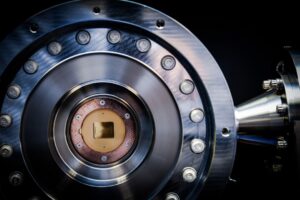Brought to you by Netgear
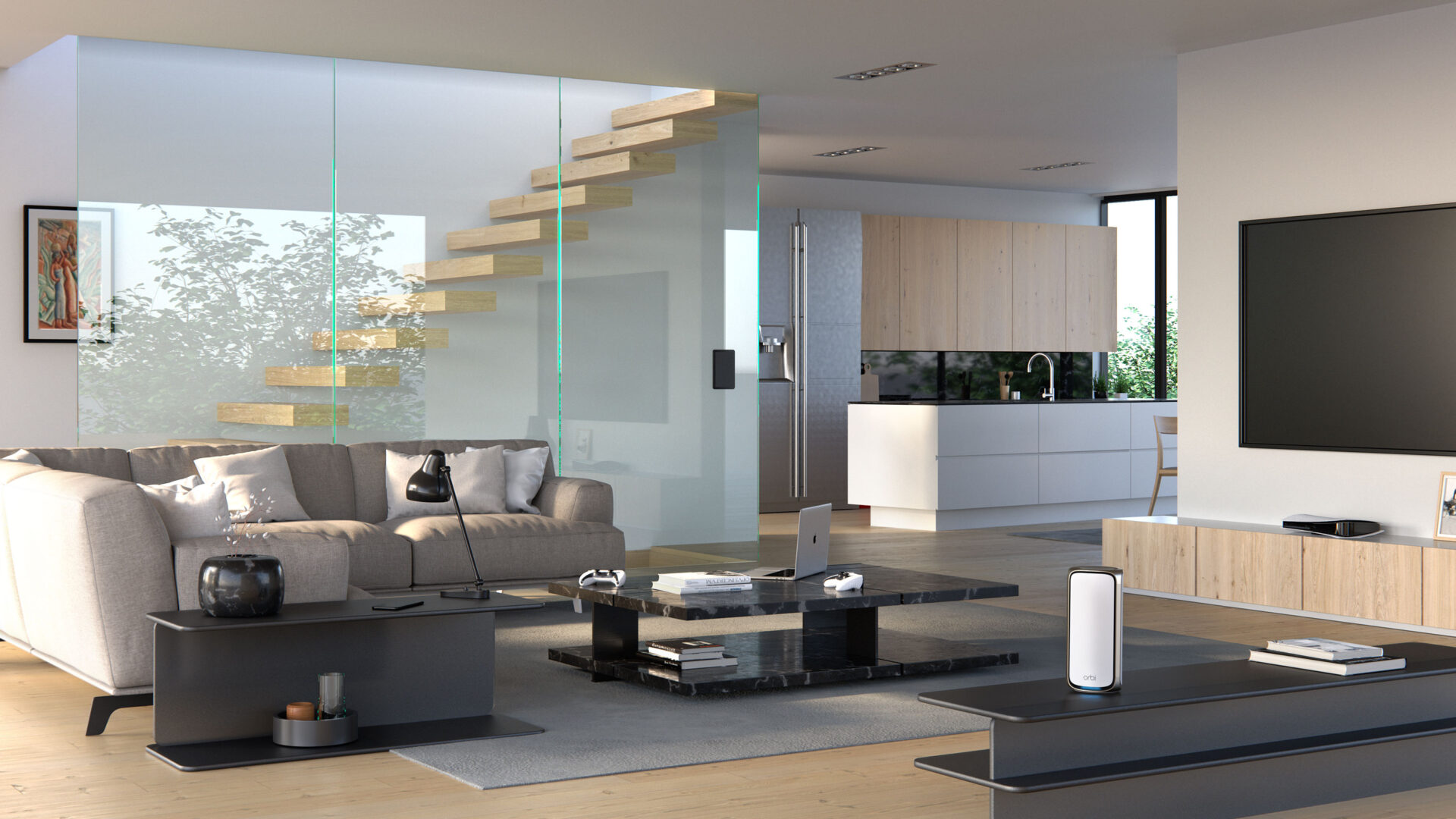
Faster fibre broadband services are becoming increasingly common in Singapore homes this year, as Internet service providers start upgrading speeds to 10Gbps while dangling attractive prices in front of consumers.
While 1Gbps services are still the most common, there are now a lot more options for faster services offering 2Gbps, 5Gbps and up to a blazing fast 10Gbps.
What will people be using with all that bandwidth? It’s the same question asked when the first 1Gbps services came online in the country more than a decade ago.
With the government now offering S$100 million in funding for telecom operators to push out 10Gbps services, users can expect more such upgraded services to be available in the coming months. And with prices falling fast, the question then becomes “why not?”
To be sure, signing up for a 2Gbps, 5Gbps or 10Gbps service is easy. However, you still need great networking equipment at home – particularly, Wi-Fi – to take full advantage of the faster cyber highway.
Old network gear that can’t handle the speed could end up being the bottleneck between the fast Internet link you have and your new laptops, mobile phones and network drives that support faster connections.
The new Samsung Galaxy S24 Ultra, for example, supports faster Wi-Fi 7 speeds and all three frequency bands available in 2.4GHz, 5GHz and 6GHz. Wi-Fi 7 is also available on new laptops launched this year, from Lenovo, HP, Dell and more.
These devices can take advantage of the faster bandwidth available from your fibre broadband service. However, it’s important they are connected to a home network that is capable of linking them up properly as well.
By “properly”, we mean a network router that sports a 10Gbps wide-area network (WAN) port to connect up your Internet service provider’s fast service.
More than that, it should have high-performance processors to sustain that speed when multiple devices, from a PC to a smart fridge, connect at the same time.
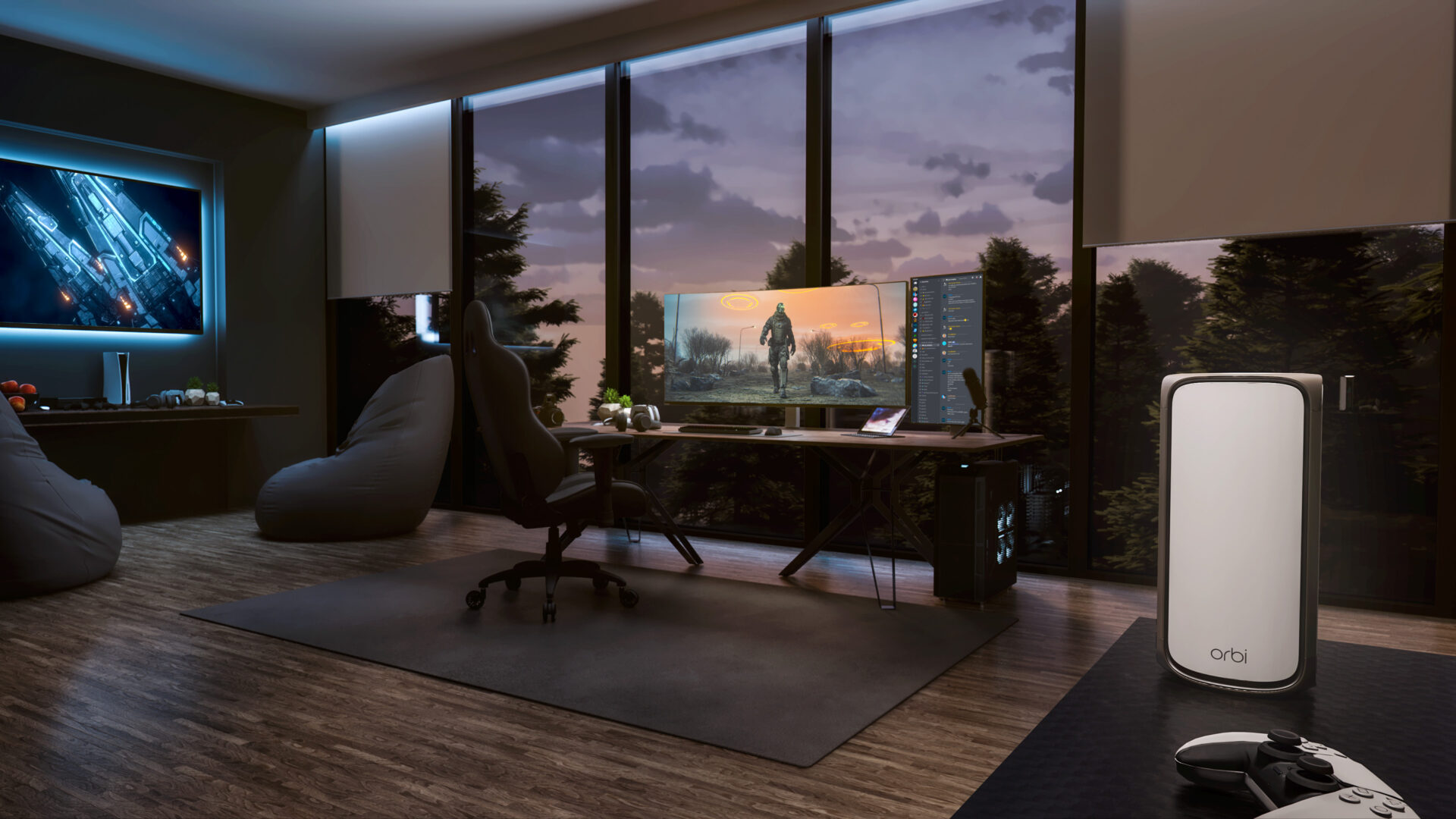
Furthermore, the best of today’s premium mesh Wi-Fi or home networking gear now comes with 2.5Gbps and even 10Gbps wired local network connections, instead of the more common 1Gbps.
This means your desktop PC or network attached storage (NAS) server can hook up at the faster speeds both on your internal network and over the Internet.
For mesh Wi-Fi nodes that are placed all over your home to maximise coverage, it helps to have a wired 2.5Gbps or even 10Gbps port that connects up as a backhaul to deliver data faster.
If wired connections are not available, then you have to make sure the mesh Wi-Fi network kit you are using supports a superior wireless backhaul link.
This means the wireless nodes at home should communicate with less interference and ensure that connections are fast wherever you are in your apartment or house.
Netgear’s Orbi 970 mesh Wi-Fi kit, for example, uses a unique radio link for its wireless backhaul or link between wireless nodes. This radio link is separate from the one used by your laptops, smartphones, security cameras and other smart devices to connect to the mesh Wi-Fi nodes.
This way, the dedicated wireless link ensures a high-quality connection between wireless nodes, ultimately offering a superior Wi-Fi experience over many run-of-the-mill mesh Wi-Fi kits.
It may come as a surprise to some users but one mesh Wi-Fi kit is not the same as another. Premium kits offer the headroom needed for the high-speed fibre broadband service you just signed up for.
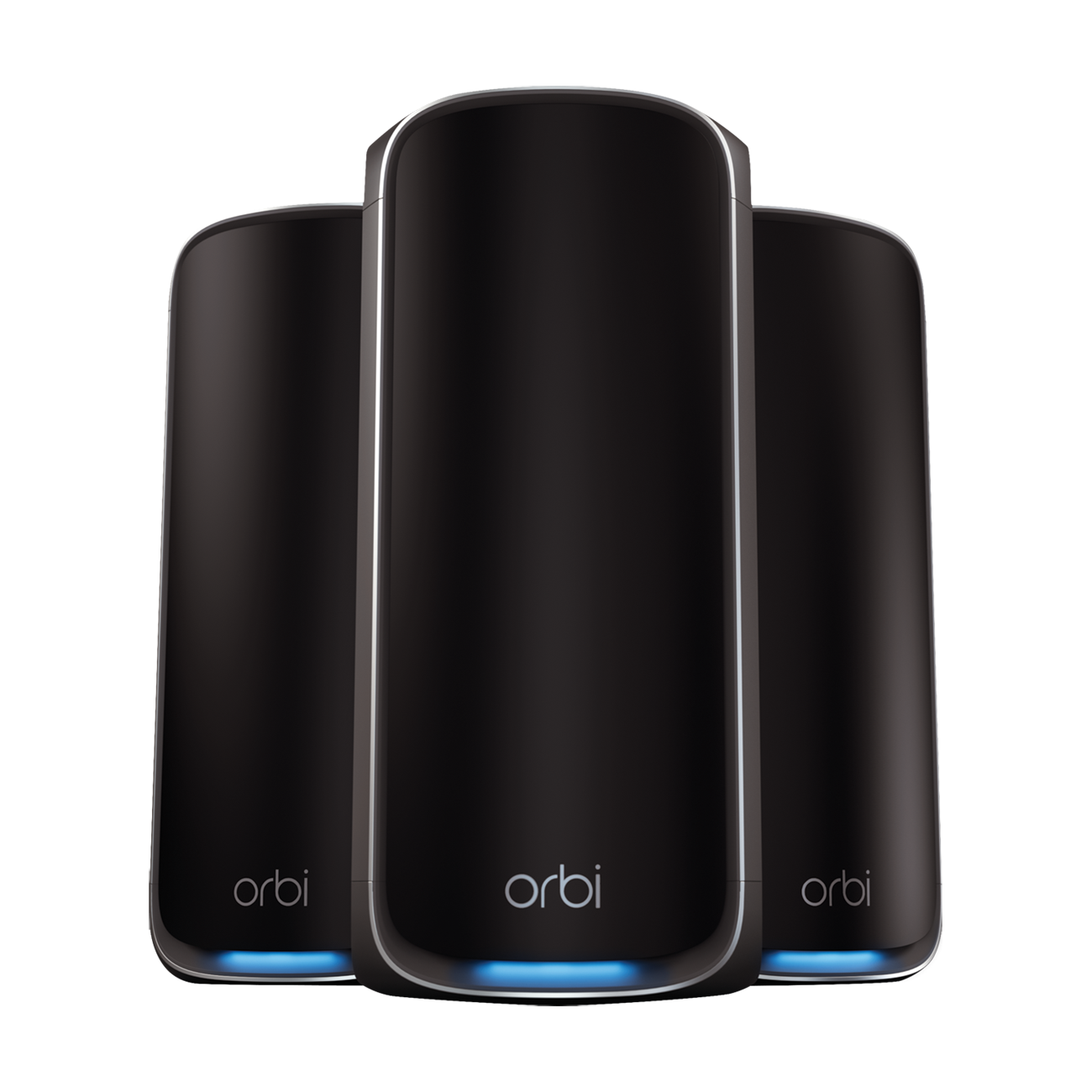
Just as important to such multi-gigabit broadband services is the move to Wi-Fi 7.
Not only does this new wireless standard offer up to a theoretical 46Gbps in top speed – 4.8x faster than before – but it also makes use of a larger amount of bandwidth, or the “airwaves” at home, to transfer data.
Even when compared to the already-fast Wi-Fi 6, Wi-Fi 7 with the same radio configuration offers speeds of up to 2.4x faster. This means a fast smartphone supporting Wi-Fi 7 can reach up to 5Gbps.
With such a fast Wi-Fi connection, your phone will be downloading at the maximum speed from the Internet, since it is not being bottlenecked by a slower mesh Wi-Fi or home networking setup.
Beyond pure speeds, Wi-Fi 7 also allows for more stable connections and a better user experience through a feature called Multi-Link Operation.
This means a laptop or smartphone that supports the technology will be able to connect across two frequency bands on a mesh Wi-Fi kit like the Orbi 970 at the same time.
This is like having two highways to get to your destination. If one of the highways (or frequency bands) is congested, you can get on the other to reach your destination faster.
For example, you may be using 6GHz or 5GHz to watch a video on your phone in the living room. If a WhatsApp call comes in and you move to, say, the balcony to take your call, your device can automatically switch to 2.4GHz to make sure the call remains uninterrupted.
Of course, not everyone is an expert in setting up their own Wi-Fi network at home, especially when there is a rather complex upgrade needed to fully enjoy the speeds offered by your faster fibre broadband service.
Plus, every apartment or house is different. In Singapore, structural beams in the middle of an apartment often block Wi-Fi signals, while a multi-storey house with a large coverage area also presents its own challenges.
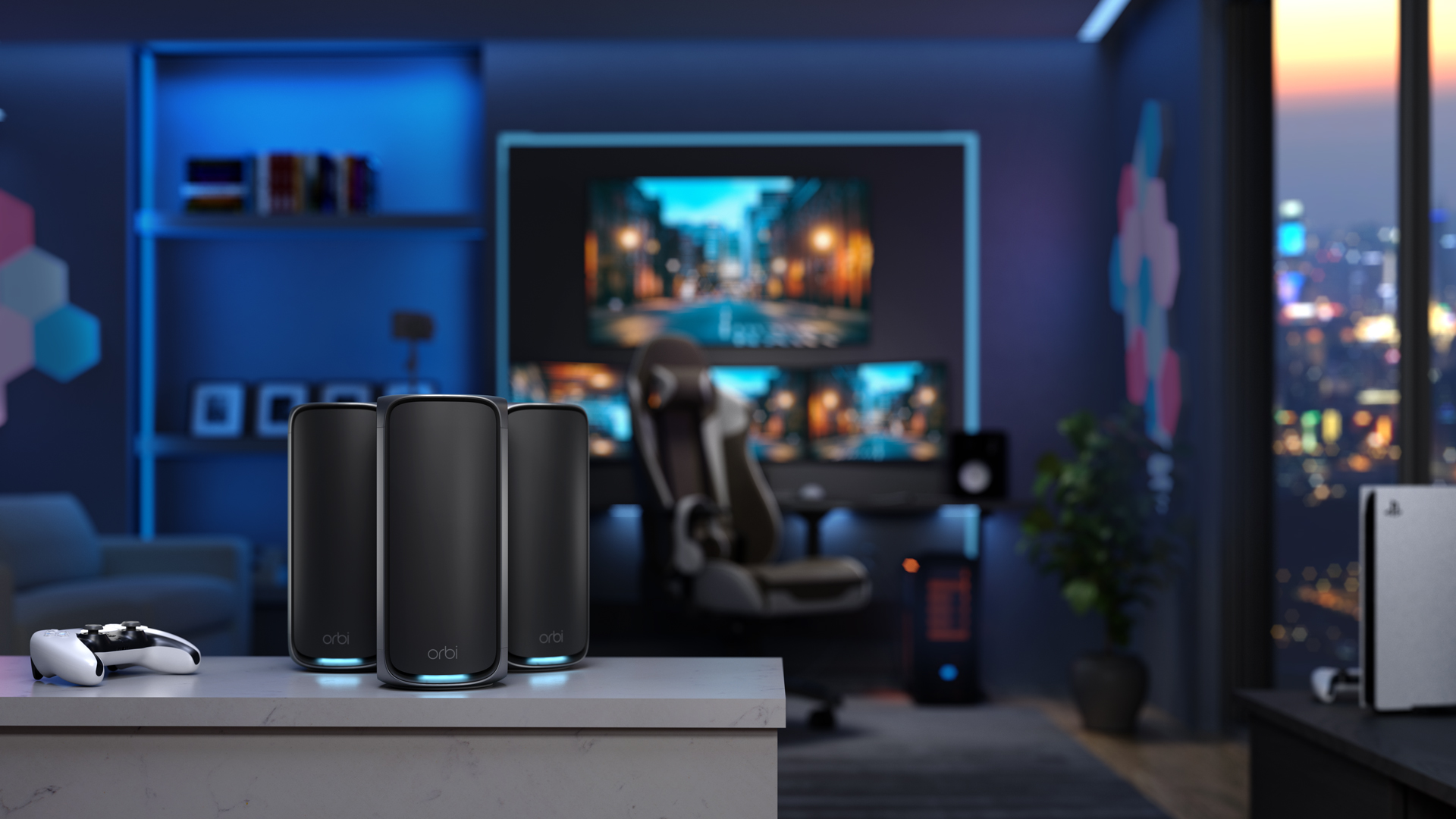
This is why Netgear offers a customised installation service for customers of its premium Orbi 970 Wi-Fi 7 networking kit in Singapore.
More than any regular Wi-Fi kit, the Orbi 970 sports 12 high-performance antennas and powerful amplifiers for a whole-of-house connection. This way, your front door to backyard gets blanketed in wireless signals.
The Orbi 970 is ready for 8K TVs, the fastest smartphones, security cameras, virtual-reality headsets and high-performance workstations, for those working at home.
Customers of the Orbi 970 can request for a free setup service in Singapore. After buying online, they just have to book an appointment for the installation.
This takes the guesswork and troubleshooting out of your hands, because Netgear’s home networking experts will be ensuring optimal coverage and speed throughout your home.
One unspoken truth about this big upgrade to multi-gig networking is that it is not easy for many home users. Having a helping hand will make sure you get the best experience with the latest fibre broadband speeds.
After all, if you’re diving on the autobahn, you want a car that can go fast enough. It should, ideally, be tuned by a team of experts who know sports cars as well.
Find out how Netgear’s premium Orbi 970 Wi-Fi networking kit can ensure you fully enjoy the fibre broadband service you just signed up for. Details here.

